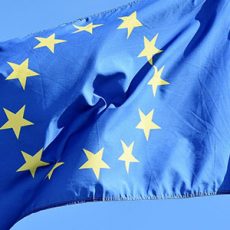
Two current phenomena – the cyclical change the EU has entered following Brexit and the outbreak of COVID-19 and the need to improve the participatory mechanisms in liberal democracies – largely explain the launch, at the end of 2020, of the Conference on the future of Europe. We can define this as a large forum which, over more than a year, gives European citizens a channel to express their positions and recommendations on major issues that are already marking the future of the Union and of the entire planet. This is a good opportunity, therefore, for citizen’s to participate in EU debates, which are often accused of being removed from societal realities.
This is an initiative launched by the European Parliament, the Council, and the European Commission, which act as a Joint Presidency for the Conference. Any European citizen can participate in the Conference, which is structured from the bottom up and has several tools for participation.
The most accessible is a Multilingual Digital Platform, which functions as a central node for the entire Conference. This is where citizens can share their ideas and contributions to the debate, all of which will be compiled and analysed to improve discussions at the Conference.
The Platform is thus at the heart of citizen participation in the project, but there are more tools, such as decentralised events organised by people and organisations as well as national, regional, and local authorities throughout Europe; and four citizens’ panels, representative in terms of geographic origin, gender, age, socioeconomic background, and/or level of education.
To encourage citizen participation, it is quite simple for any entity to organise an event to be included in the Conference and thus participate in a chain of debate that reaches a high political level. There are nine major areas of debate, such as Health, Migration, and European democracy, as well as, of course, Digital transformation, and Climate change and the environment. The Conference will address issues of particular interest to the European Association for Digital Transition, such as consumer rights, boosting employment, and the protection of new democracies.
Another basic tool of the Conference is its Plenary, in which institutions and citizens participate. It consists of 108 representatives from the European Parliament, 54 from the Council (two per Member State), and three from the European Commission, as well as 108 representatives from all national Parliaments, all on an equal footing. As for citizen participation, another 108 people will participate to discuss citizens’ ideas stemming from the Citizens’ Panels and the Multilingual Digital Platform: 80 representatives from the European Citizens’ Panels, of which at least one-third will be younger than 25, and 27 from national Citizens’ Panels or Conference events (one per Member State), as well as the President of the European Youth Forum.
The role of the Plenary is to discuss the recommendations from the national and European Citizens’ Panels and the contributions from the Multilingual Digital Platform, grouped by themes, without a predetermined outcome and without limiting the scope to pre-defined policy areas. There will be at least six Plenary sessions, and the first was already held on June 19th.
It is expected that by spring of 2022, at the latest, the Conference will reach some conclusions on the future of Europe, based on the discussions in the Plenary sessions and after submitting their conclusions to the Conference’s Executive Board. A report will be drawn up and presented to the European Parliament, the Council, and the Commission. Each of these institutions has committed to examine swiftly how to follow up effectively on this report, each within their own sphere of competences.
This entire process is not the quickest and most functional, but it is based on a laudable purpose: to try to make all voices heard, without any interesting contribution being lost along the way. We Europeans must be vigilant to continue being masters of our own future, and participation in social and political forums is another tool to achieve this.




